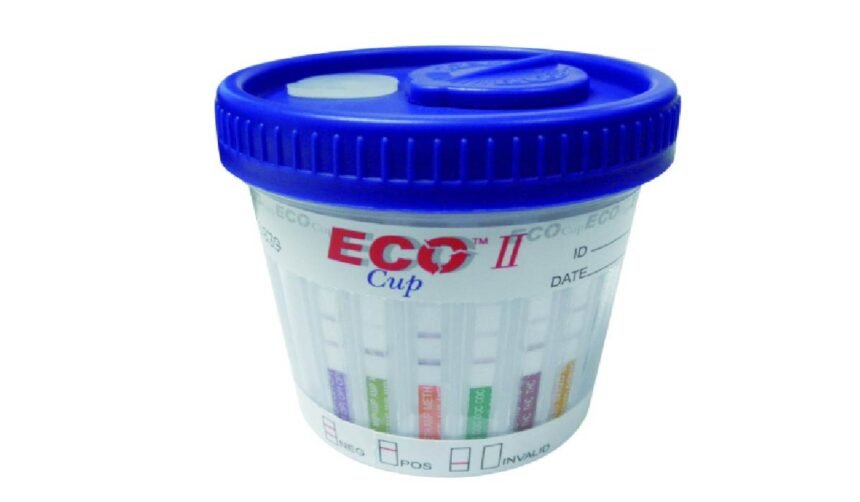When it comes to drug testing, accuracy is paramount. Many institutions, from workplaces to rehabilitation centres, rely on urine drug test kits for precise substance screening. Ensuring accurate results from a urine drug test kit requires adherence to specific guidelines and an understanding of the testing process.
Understanding Urine Drug Test Kits
Urine drug test kits are widely used due to their non-invasiveness and ease of administration. These kits are designed to detect the presence of drugs or their metabolites in urine. The choice of a urine drug test kit depends on various factors, including the type of substances being screened and the accuracy required. To achieve reliable results, it is crucial to select a kit designed for the specific substances of interest.
Preparation Before Testing
Preparation is crucial for obtaining accurate results with urine drug test kits. Before administering the test, it is important to ensure that the kit is stored appropriately as per the manufacturer’s instructions. Typically, test kits should be stored in a cool, dry place away from direct sunlight. Additionally, individuals undergoing the test should be informed about the procedure and any potential impacts on their test outcomes.
Collection of Urine Sample
The accuracy of a urine drug test is highly dependent on the proper collection of the urine sample. It is recommended to collect the sample first thing in the morning when urine is the most concentrated. The individual being tested should be provided with a clean container and clear instructions on how to collect the sample to avoid contamination. Ensuring the sample volume is adequate as per the test kit’s guidelines is also vital for accurate testing.
Handling and Labelling
Proper handling and labelling of urine samples play a significant role in the testing process. Each sample should be labelled correctly with the necessary information such as the individual’s identification number and collection time. It is essential to handle the sample with care to prevent any spillage or mix-up which could compromise the results.
Conducting the Test
To ensure that the urine drug test kit works effectively, it is important to follow the instructions closely. Most kits involve dipping a test strip into the urine sample or using a dropper to apply the sample onto a testing panel. Observing the reaction time specified in the instructions is crucial. Any deviations could lead to false results.
Interpreting Test Results
Accurate interpretation of the results is the next step in using a urine drug test kit effectively. Test results are typically displayed in the form of coloured lines or indicators on the test strip. It is important to read the results within the timeframe suggested by the manufacturer to avoid inaccurate detection.
Understanding Limitations
Each urine drug test kit comes with its limitations, and understanding these is fundamental to achieving accurate results. No test is infallible, and factors such as cross-reactivity with other substances or improper administration can affect the outcome. Hence, it may be necessary to confirm results with additional testing if there is any uncertainty.
Ensuring Quality Control
Quality control is an integral aspect of the drug testing process. Regular checks on the functionality and expiry of the test kits ensure they remain reliable. Using controls provided with some kits can help verify that the test is performing correctly.
The Role of Expertise
While urine drug test kits are designed for ease of use, the involvement of trained personnel can enhance the reliability of the testing process. Personnel should be familiar with the interpretation of test results and knowledgeable about handling potential discrepancies that might arise.
Maintaining Confidentiality
An often overlooked aspect of the testing process is confidentiality. Ensuring that the results are kept confidential and only shared with authorised personnel is crucial in all testing environments. This not only protects the privacy of the individual but also maintains the integrity of the testing process.
Common Use Cases
Urine drug test kits are utilised across a wide range of scenarios. Workplaces apply them as part of routine safety procedures. They are also common in clinical settings for monitoring patient compliance with prescription medications or rehabilitation programmes. Understanding the specific needs and applications will aid in selecting the appropriate testing methodologies.
Implementation Challenges
Implementing urine drug testing in institutional settings sometimes encounters challenges, such as ensuring compliance with legal standards or navigating privacy concerns. Addressing these hurdles requires clear policies and procedures that align with ethical standards.
The Importance of Updates
Research and development in the field of drug testing continuously enhance the effectiveness of test kits. Staying informed about the latest advancements can ensure that the most up-to-date methodologies are employed, increasing the accuracy and reliability of test results.
Conclusion: Achieving Effective Results
In sum, the efficacy of a urine drug test kit relies on meticulous preparation, adherence to instructions, and proper handling of results. Institutions employing these kits must be vigilant about evolving best practices and regulatory standards to maintain the highest quality of drug testing. Adopting comprehensive quality control measures and training staff effectively are integral parts of this process.


